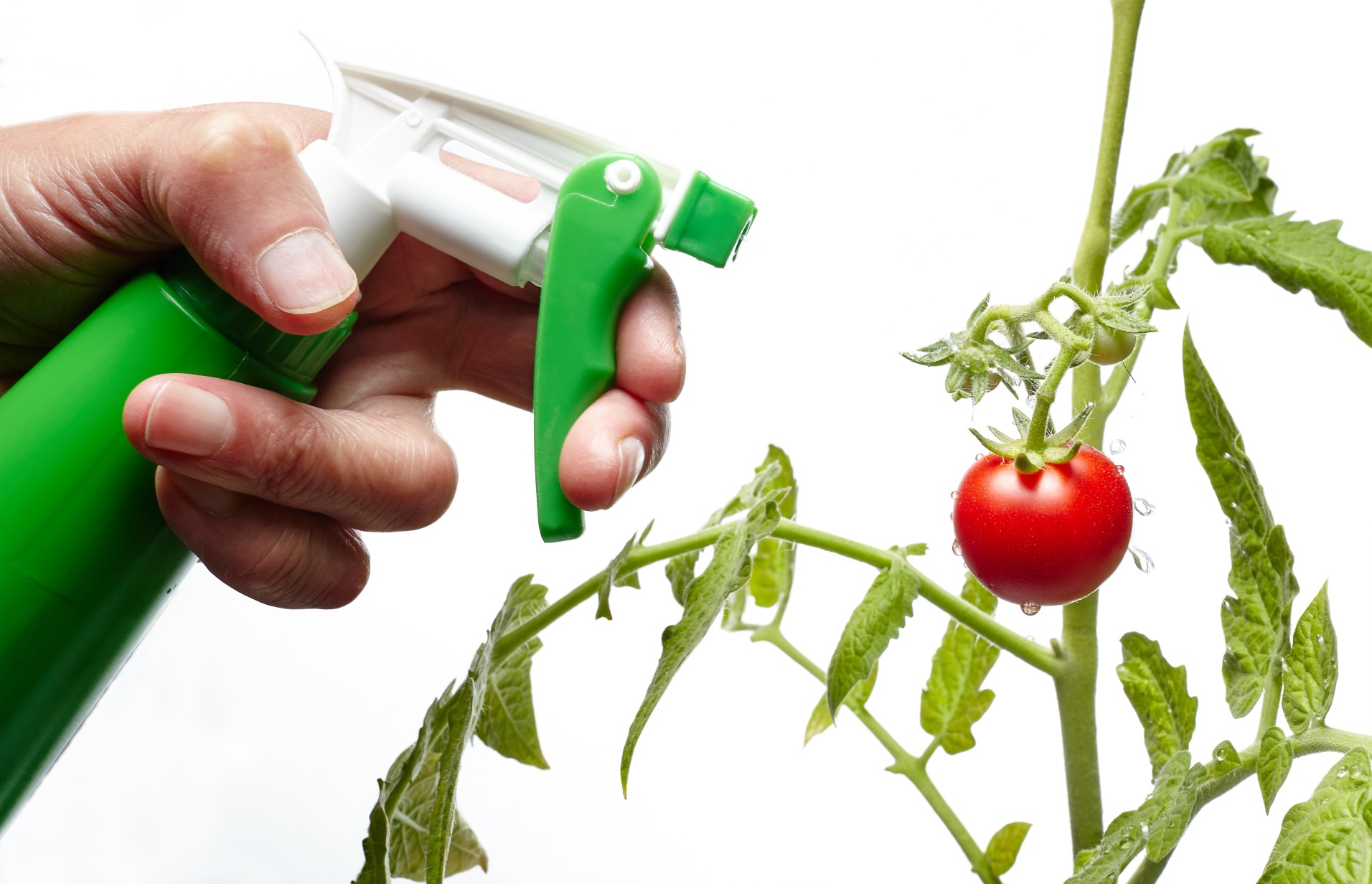Food recalls due to outbreaks of E. coli or salmonella happen all too often. Now if you are worried about your food being contaminated you soon will have a new weapon on your side—a food decontamination spray.
Researchers at McMaster University in Hamilton, Canada have developed the new super-disinfectant product that is safe when sprayed on food, but is highly effective in destroying potentially deadly bacteria. Applying the antibacterial spray to your food will stop bacterial infection and contamination in their tracks, the scientists say.
The spray can eliminate E. coli in meat and lettuce which often are the sources of outbreaks of disease, the researchers explain. The same approach also can be used against other bacteria that cause food poisoning such as listeria and salmonella.
Sprays similar to the one that has been developed at McMaster could also be used in food packaging, processing, and cleaning. Additionally, they could serve as a treatment for irrigation equipment and water where contamination would be stopped at the source, the researchers say.
A tiny army
When we apply the new spray to our meal we essentially gather billions of tiny soldiers to protect our food, explains Shadman Khan, a graduate student at the university who tested the antibacterial spray on food products.
The research team that invented the spray was led by professors Zeinab Hosseinidoust—who occupies the Canada Research Chair in Bacteriophage Bioengineering—and Tohid Didar who holds the Canada Research Chair in Nano-Biomaterials. They were assisted by graduate student Lei Tian.
The team developed a way to encourage tiny harmless viruses that eat bacteria—called bacteriophages or just simply phages—to link together to form microscopic beads. Each of the beads is about 20 microns, or a fiftieth of a millimeter, in diameter. Each bead contains millions of phages.
The team then gathered these microbeads into a spray that contains nothing but the microbeads.
When they are joined as a mini-army they are considerably more powerful in eating bacteria than when they are acting alone.
So it is that when the beads are sprayed on food they are safe for humans to eat, but the beads destroy harmful bacteria that can cause disease, such as E. coli 0157.
Like pieces of lego
The beads link together as if they were microscopic pieces of Lego, Tian explains. This structure, which is organized and is natural, makes them more resistant than if they were acting alone. They also are easier to store, package, and use when they are bonded together.
The research builds on chemistry that is similar to that which the lab headed by Hosseinidoust used when the team triggered phages to link up together in sufficient amounts to form a gel.
Back to the future
Development of the new spray goes back to the days before penicillin was introduced in the 1940s. At that time, research into therapies and disinfectants made up of phages was promising. Interest in their development waned, however, once antibiotics developed from penicillin were introduced on to the market.
Now that the power of today’s antibiotics is being restricted by antimicrobial resistance, a strong new interest is arising into research on phages.
When phages—which occur naturally in the environment and in a person’s body—contact bacteria, they multiply. As they do, their power to destroy bacteria explodes as they go to work.
This chain reaction creates an ongoing and dynamic response that is even more effective than antibiotics, says Didar.
No other antibacterial product, including bleach, contains the special properties that phages do, he adds.
Specific bacterial strains can be targeted
Another significant benefit of using phages in food production and agriculture is that they can be specially directed at destroying bacterial strains that are harmful without killing those bacteria that not only are beneficial but also enhance the smell, taste, and texture of food.
Looking at medical use
The research team plan next to test the new material in medicine, where it could be used to disinfect wounds, for example.
Applications for medical use will take longer to be proven effective and safe, but a product made to disinfect food processing could make it to market a lot more quickly, the team members add.
Researchers say the new phage spray promises to hold significant potential for commerce, specially because phages already have been approved by the U.S. Food and Drug Administration for use in food.






